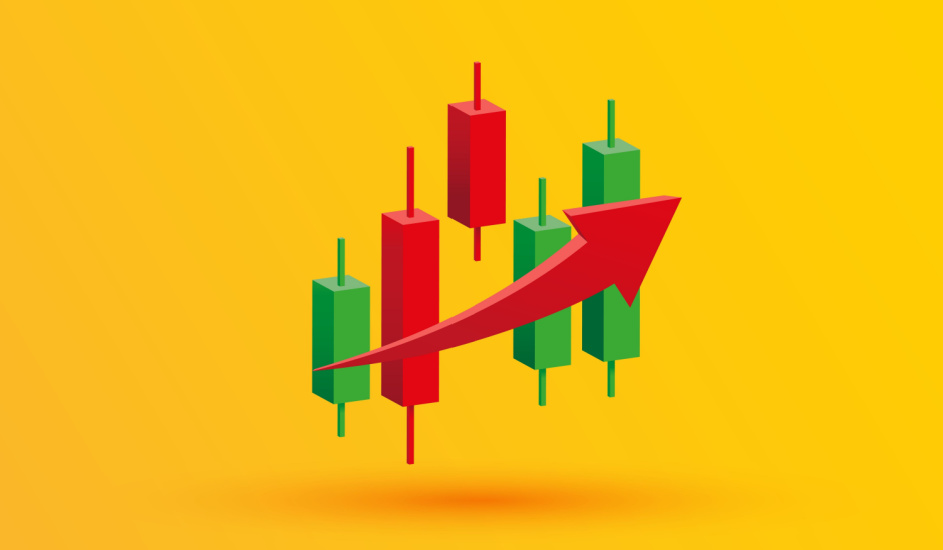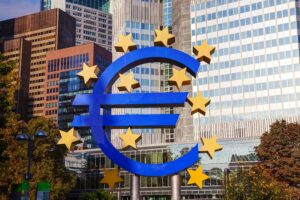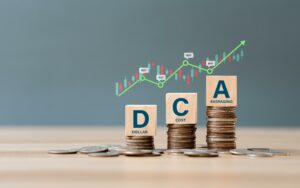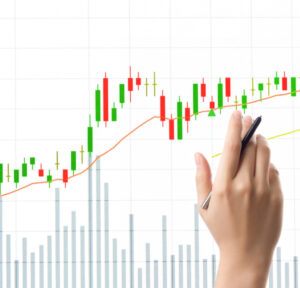What you need to know about forex trading in South Africa

The following article covers the essential knowledge you need on how forex trading works and tips to get you started.
What is forex trading?
Forex (FX) combines the words exchange and foreign currency. Foreign exchange converts one currency into another for several purposes, typically for business, trade, or travel.
There is no one central marketplace for foreign exchange, making the foreign exchange market a unique venue to swap different national currencies. Instead of taking place on a single centralised exchange, currency trading is done electronically over the counter (OTC). This means that all transactions take place via a network of computers used by traders around the world.
Financial organisations and investment banks utilise forex trading as a standard in international commerce to try and increase earnings and protect their other interests. Together with individual traders, commonly known as retail forex traders, make the fx market the largest capital market in the world.
How does forex trading work in South Africa
The Financial Sector Conduct Authority (FSCA) oversees Forex trading in South Africa. The FSCA is in charge of safeguarding South African citizens from financial fraud and ensuring that the financial sector is robust and competitive. Any business that offers financial services, such as Forex brokers, banks, hedge funds, insurance providers, and the Johannesburg Stock Exchange (JSE), falls under FSCA supervision.
The amount of leverage Forex brokers in South Africa are allowed to provide clients is unrestricted, and they are not required to provide negative balance protection. Trading requires caution on the part of South Africans to avoid losing more money than they can afford.
Forex brokers who are FSCA-regulated must keep customer funds separate from operations funds and are regularly audited to make sure that client funds are not being mishandled. All FSCA-regulated brokers are required to submit an Over-the-Counter Derivative Provider (ODP) licensing application, which further safeguards South African traders by making sure that Forex brokers are led by qualified directors and have sufficient liquidity to avoid going out of business.
Rand (ZAR) trading accounts are available to South African Forex traders as well. Forex brokers only provide trading accounts in euros or US dollars (USD) (EUR). Every time a South African trader deposits or withdraws money from a USD trading account, they are prone to lose money due to currency conversion fees. There are no conversion fees while using a ZAR trading account. Additionally, as most ZAR trading accounts are maintained in South African banks, withdrawals and deposits are processed significantly quicker.
Take your earned knowledge to practice. Sign up to use a free demo account>>
How much do I need to start forex trading in South Africa?
Most brokers usually demand a minimum deposit of between $100 and $200. How much money you should begin trading with is based on how much you can afford to lose, together with your level of risk tolerance.
Understanding arbitrage trading in South Africa for beginners
Using price differences between domestic and international exchanges to one’s advantage is known as arbitrage. As an illustration, the price of cryptocurrencies like bitcoin (BTC) is higher domestically than abroad by 2% to 3%. As a result, a trader can potentially profit by acquiring foreign currencies abroad and then selling them locally. Numerous currency pairs can be used to do it.
Purchasing a currency worth R100,000 on a US exchange will cost you between R102,000 and R103,000 in South Africa.
South Africans can trade R11 million a year in international assets through their foreign exchange allowance, which they can use to purchase currencies abroad. A single discretionary allowance of R1 million and a foreign trading allowance of R10 million make up the total.
You use a portion of your foreign exchange allocation each time you trade on foreign instruments until the R11 million ceiling has been reached. Every January 1, the allowance is reset.
Arbitrage enables local traders to fully utilise this allowance without having access to R11 million in instruments. For example, l, since arbitrage is a cyclical process, someone with R200,000 can cycle it 55 times before they hit their R11 million cap.
The profitability of arbitrage is, however, restricted by South Africa’s foreign exchange rules to an estimated R100,000–R200,000 per individual each year. Many traders use their own and their spouse’s allowances to increase their earnings yearly by a factor of two potentially.
Tips for trading Forex in South Africa
Commit to your education if you want to trade Forex.
Find a broker that suits you, and compare the ones in South Africa.
Understudy how derivative trading and the Forex market work.
Discover the tools and software that will fuel your trade.
While there’s a good chance for potential profit in Forex trading, as in any market, beginners are recommended to learn the basics to increase the chance of potential success and profitability. This, of course, also depends on considering the right strategy according to one’s needs.
Disclaimer: Our content is intended to be used for informational purposes only. It is very important to do your own research before making any investment based on your own personal circumstances. You should take independent financial advice from a professional in connection with, or independently research and verify, any information that you find on this article and wish to rely upon, whether for the purpose of making an investment decision or otherwise. Klips does not put available shares or any other underlying asset, but CFD derivatives based in underlying assets.

Start trading derivatives in currency pairs
This information is written by Klips. The information is provided for general purposes only and does not consider any personal circumstances or objectives. Before acting on this material, you should consider whether it is suitable for your circumstances and, if necessary, seek professional advice. No representation or warranty is given as to the accuracy or completeness of this information. It does not constitute financial, investment or other advice on which you can rely. Any references to past performance, historical returns, future projections, and statistical forecasts are no guarantee of future returns or future performance. Klips will not be held responsible for any use that may be made of this information and for any consequences that may result from such use. Hence, any person relying on the information on this page does it at their own risk.
Learn more, understand the markets
Learn

Top AI Companies to Watch: A Deeper Dive
ByAndreea
 3 min.
3 min.Learn

Charting Your Course to Trading Success with Klips
ByAndreea
 3 min.
3 min.Learn

Navigating the ECB’s Monetary Policy with Klips: Empowering Your Trading Strategy
ByAndreea
 3 min.
3 min.Learn

Harness the Power of Dollar-Cost Averaging on Klips Trading Platform Amidst a Bear Market
ByAndreea
 3 min.
3 min.Learn

Blockchain: The Future of Finance?
ByAndreea
 5 min.
5 min.Learn

AMC stock price – What Influences it the most
ByAdmin
 5 min.
5 min.Learn

What are trading signals?
ByAdmin

Trading

3 popular candlestick patterns for forex trading strategy
ByAdmin
 4 min.
4 min.Trading

Learn how simple forex trading is in South Africa
ByAdmin
 5 min.
5 min.Trading

The Warren Buffet of India: Find Out How Rakesh Jhunjhunwala Built His Fortune
ByAdmin
 7 min.
7 min.



